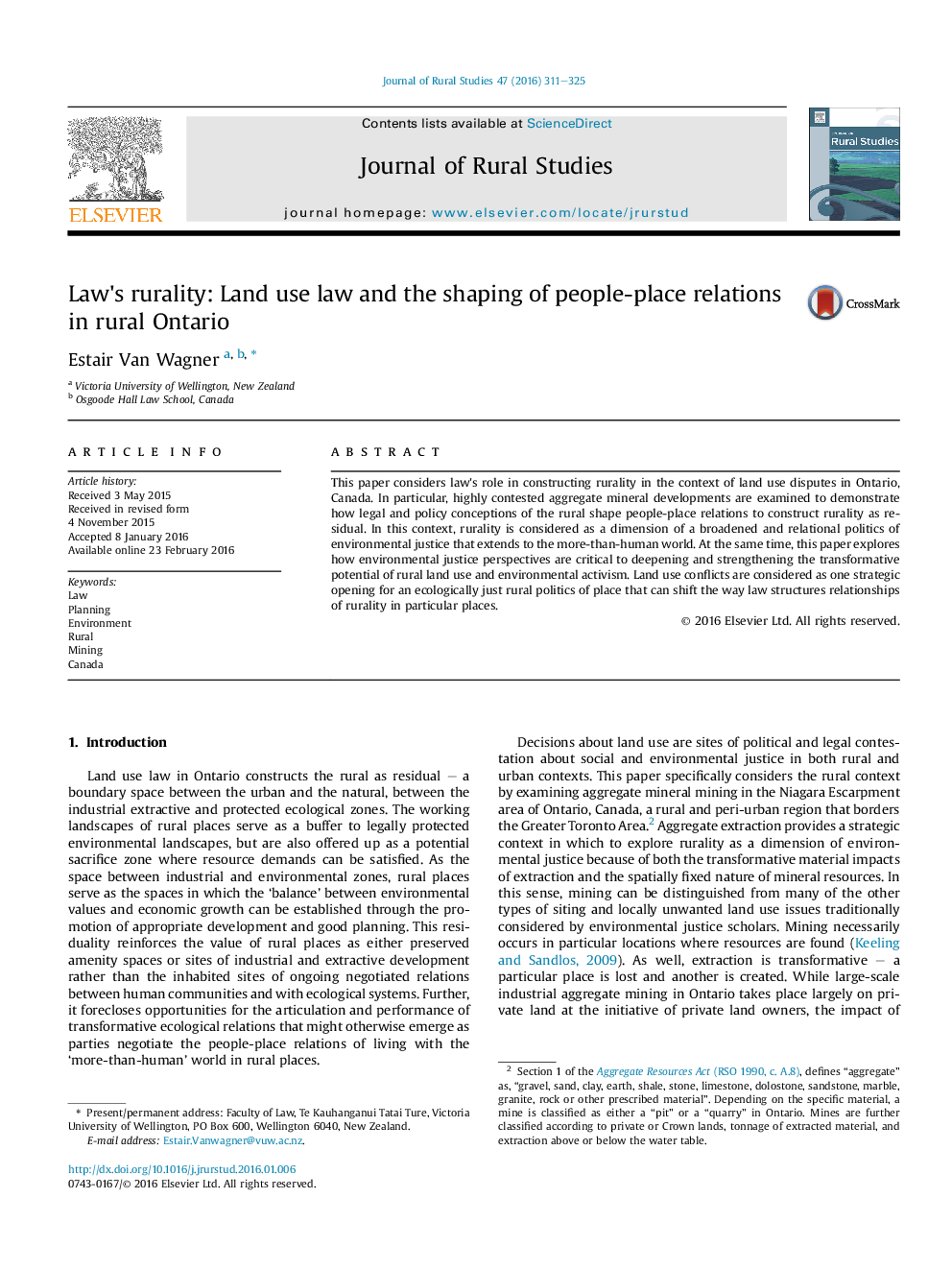| Article ID | Journal | Published Year | Pages | File Type |
|---|---|---|---|---|
| 6460204 | Journal of Rural Studies | 2016 | 15 Pages |
â¢Law structures rurality as residual space in Ontario's planning framework.â¢Rural relationships with place are embodied, complex, and contradictory.â¢Rurality broadens the environmental justice framework.â¢Rural activism can be strengthened through engagement with environmental justice.
This paper considers law's role in constructing rurality in the context of land use disputes in Ontario, Canada. In particular, highly contested aggregate mineral developments are examined to demonstrate how legal and policy conceptions of the rural shape people-place relations to construct rurality as residual. In this context, rurality is considered as a dimension of a broadened and relational politics of environmental justice that extends to the more-than-human world. At the same time, this paper explores how environmental justice perspectives are critical to deepening and strengthening the transformative potential of rural land use and environmental activism. Land use conflicts are considered as one strategic opening for an ecologically just rural politics of place that can shift the way law structures relationships of rurality in particular places.
